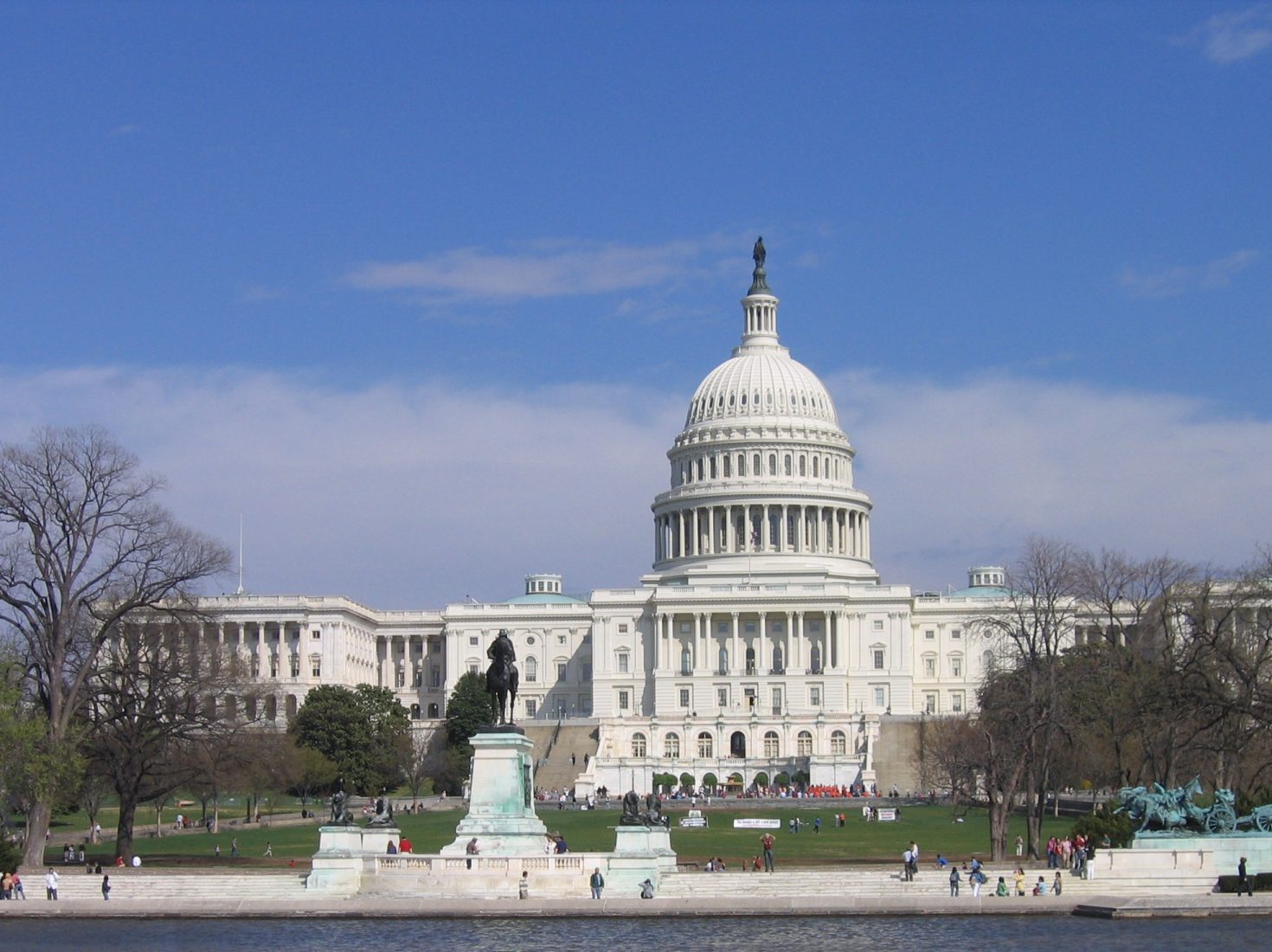On February 8, 2024, Mayor Muriel Bowser presented the Zero Waste DC Plan to the Council, outlining policies, programs, and initiatives to meet the District’s aim of reducing per capita waste generation by 15% and transitioning from a disposable culture to a circular economy. Of the 43 actions in the plan, a handful are essential for building owners and design professionals to know about now.
Overview of the Zero Waste DC Plan
In 2013, the District enacted the Sustainable DC Plan and established the ambitious goal of diverting 80% of the citywide waste stream away from landfills and incineration. For 2018, that citywide waste stream was estimated at over 1.1 million tons. Previously established guidelines from the 2019 Sustainable DC 2.0 Plan and the Zero Waste Omnibus Amendment Act of 2020 guided development of the Zero Waste DC Plan, finalized in early 2024 after years of research and public engagement. Originally, the target year to achieve 80% diversion of solid waste was 2032, but technical analysis that modeled rates of adoption, participation, and materials capture guided extension of the zero-waste target year to 2040.
What most DC residents and business owners will be talking about in the months ahead are the plan provisions for phasing out single-use plastics and other disposable items beginning next year, with a ban on throwaway plastics by 2030. Other noteworthy action items include mandatory recycling and composting, policies to increase reusable and refillable packaging, and requirements for donation of surplus food and materials.
What might not be the talk of the town – at least not right away – are some of the demands on building owners and design professionals that will impact construction projects.
Construction and Demolition
The primary objective of the Zero Waste DC Plan is articulated in “Goal 1: Reduce Per Capita Waste Generation.” Without a significant drop in waste, the plan will fail to achieve the 80% cut in the volume of material that winds up in landfills and incinerators. Of critical importance to building owners, property managers, and design professionals is Action 5 under this Goal, which calls for updating the DC Green Construction Code to require all new construction, demolition, and building retrofit projects to submit a Deconstruction Plan. Eighty percent of recoverable materials, including lumber, metal, stone, brick, and electrical and plumbing fixtures, will need to be salvaged and contributed toward the development of affordable housing. How this will be achieved is yet to be determined, but the timeframe for implementation is listed as “Medium Term,” which could be as soon as five years from now.
In the short term, Action 25 seeks to expand Extended Producer Responsibility requirements for hard-to-recycle materials, including some construction waste, such as paint, carpet, textiles, and solar panels. Upon implementation, anticipated within the next few years, disposal of covered materials in landfills or incinerators will be banned.

Recycling and Composting
Under “Goal 3: Increase Recycling and Composting Participation and Accessibility,” Action 14 calls for adoption of a universal recycling and composting ordinance that will require owners and facility managers of all commercial, institutional, governmental, and multi-family residential buildings to provide for the separation and collection of recyclable materials (e.g. plastics, glass, paper, aluminum, and cardboard), as well as compost (including food scraps and compostable containers). The plan looks to adopt this ordinance by 2025, which means facility managers should plan as soon as possible for this change in operations. Design professionals and property owners alike should consider the space requirements for sorting and collection.
To this end, Action 24 calls for revision of the DC Green Construction Code to require all new multi-family residential construction to include dedicated space for recycling and composting. By 2032, existing multi-family residential properties must be retrofitted to meet this requirement, as well.
Enforcement
Community education is a key part of the plan, from training programs for property managers on preventing food waste to hands-on learning about composting in school cafeterias. Robust enforcement, though, is also a critical component. Action 38 aims to increase the number of inspectors – and impose fines – for building owners and businesses that fail to comply. To place oversight directly into the hands of the community, Action 39 establishes a new Zero Waste Tip-Line for residents to report non-compliant commercial buildings and businesses.
Zero Waste Financial Assistance
Implementing recycling and composting collection, providing for recoverable construction waste diversion, and arranging producer recovery of hard-to-recycle materials, along with navigating operational changes to eliminate food waste and disposable products, won’t be cheap. Under “Goal 5: Build an Inclusive and Local Circular Economy,” Action 32 calls for expanding financial assistance programs – and creating new ones – particularly for small businesses, nonprofits, and institutions. Zero Waste tax credits and other incentives are also on the agenda to help owners manage these costs, with planned implementation by 2028.
Ahead of the Curve
To prepare for these changes, building owners, property managers, and design professionals should begin coordinating with suppliers and contractors to discuss implications for any upcoming construction projects. Reusing existing materials, particularly for historic buildings, may already be part of the plan for rehabilitation or restoration efforts, but newer buildings, too, should look at ways to salvage and reuse. As for composting and recycling, with demand surging over the coming months in response to the new plan, it’s a good idea to start preparing early, especially if retrofitting designated sorting and collection spaces will require building modifications.
Even if the initiatives under the Zero Waste DC Plan aren’t fully in force right away, it’s good practice to start implementing the policies now, where feasible. Early adoption will not only lead the pack on cutting down waste, but also allows time to practice new procedures at an unhurried pace before mandates force a hasty effort to comply.
This material is for informational purposes. Before taking action, consult a design professional.
Hoffmann Architects + Engineers (www.hoffarch.com) is a design professional firm specializing in the rehabilitation of building exteriors, with offices in Alexandria Va., New York, and New Haven Conn.
Related Stories
Codes and Standards | Sep 19, 2024
Navigating the intricacies of code compliance and authorities having jurisdiction
The construction of a building entails navigating through a maze of regulations, permits, and codes. Architects are more than mere designers; we are stewards of safety and navigators of code compliance.
Government Buildings | Sep 17, 2024
OSHA’s proposed heat standard published in Federal Register
The Occupational Safety and Health Administration (OSHA) has published a proposed standard addressing heat illness in outdoor and indoor settings in the Federal Register. The proposed rule would require employers to evaluate workplaces and implement controls to mitigate exposure to heat through engineering and administrative controls, training, effective communication, and other measures.
Codes and Standards | Sep 17, 2024
New California building code encourages, but does not mandate heat pumps
New California homes are more likely to have all-electric appliances starting in 2026 after the state’s energy regulators approved new state building standards. The new building code will encourage installation of heat pumps without actually banning gas heating.
Codes and Standards | Sep 17, 2024
ASHRAE’s first group of certified decarbonization professionals announced
ASHRAE recently announced its inaugural cohort of Certified Decarbonization Professionals (CDPs). Individuals who earned this designation demonstrate competency to assess, analyze, and develop effective and sustainable strategies to reduce or eliminate the life-cycle carbon footprint of buildings.
Education Facilities | Sep 16, 2024
Hot classrooms, playgrounds spur K-12 school districts to go beyond AC for cooling
With hotter weather occurring during the school year, school districts are turning to cooling strategies to complement air conditioning. Reflective playgrounds and roads, cool roofs and window films, shade structures and conversion of asphalt surfaces to a natural state are all being tried in various regions of the country.
Adaptive Reuse | Sep 12, 2024
White paper on office-to-residential conversions released by IAPMO
IAPMO has published a new white paper titled “Adaptive Reuse: Converting Offices to Multi-Residential Family,” a comprehensive analysis of addressing housing shortages through the conversion of office spaces into residential units.
Legislation | Sep 9, 2024
Efforts to encourage more housing projects on California coast stall
A movement to encourage more housing projects along the California coast has stalled out in the California legislature. Earlier this year, lawmakers, with the backing of some housing activists, introduced a series of bills aimed at making it easier to build apartments and accessory dwelling units along California’s highly regulated coast.
Office Buildings | Sep 6, 2024
Fact sheet outlines benefits, challenges of thermal energy storage for commercial buildings
A U.S. Dept. of Energy document discusses the benefits and challenges of thermal energy storage for commercial buildings. The document explains how the various types of thermal energy storage technologies work, where their installation is most beneficial, and some practical considerations around installations.
Office Buildings | Sep 5, 2024
Office space downsizing trend appears to be past peak
The office downsizing trend may be past its peak, according to a CBRE survey of 225 companies with offices in the U.S., Canada, and Latin America. Just 37% of companies plan to shrink their office space this year compared to 57% last year, the survey found.
Codes and Standards | Sep 3, 2024
Atlanta aims to crack down on blighted properties with new tax
A new Atlanta law is intended to crack down on absentee landlords including commercial property owners and clean up neglected properties. The “Blight Tax” allows city officials to put levies on blighted property owners up to 25 times higher than current millage rates.

















